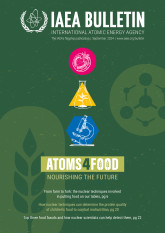LANASEVE is now internationally recognized as a regional leader in food safety and provides training to other laboratories in the region. “This advancement enables us to assist other regional laboratories with food safety analysis, bolstering overall quality and safety standards,” adds Salazar Chacón.
Enhancing LANASEVE’s comprehensive laboratory testing services has significantly bolstered Costa Rica’s export strength. These efforts have kept international markets open for Costa Rican livestock products and have facilitated entry into new markets.
“In just five years, China has become Costa Rica’s most crucial market for animal product exports,” adds Matamoros.
The growth in meat exports has enabled producers like Salas Jiménez to sustain and expand their livelihoods.
“I am confident that our products from Costa Rica are not only safe for consumption but also meet high safety standards, both within and beyond our borders,” says Salas Jiménez.




